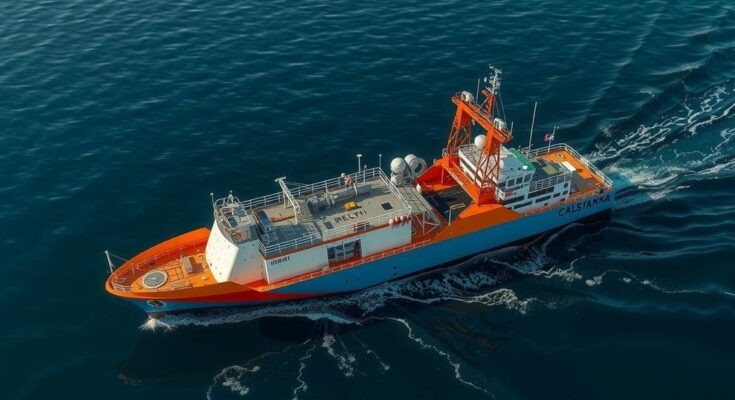A Durham scientist is part of an international research team drilling into the seabed off Japan to investigate the 2011 Tohoku earthquake. This project, led by the JTRACK initiative, seeks to analyze fault behavior and the processes behind significant seismic events, contributing to a deeper understanding of earthquake mechanisms.
A scientist from Durham is currently part of an international team investigating the 2011 Tohoku earthquake by drilling into the seabed off the eastern coast of Japan. The Tohoku earthquake, one of the largest recorded events in history, resulted in a catastrophic tsunami, widespread infrastructure destruction, and the meltdown of the Fukushima Daiichi nuclear power plant. The disaster led to the loss of approximately 18,500 lives and displaced over 160,000 individuals.
In 2013, the Japan Trench Fast Drilling Project (JFAST) was initiated to examine geological samples from the Japan Trench, focusing on the earthquake’s mechanisms. As part of a continuation of this research, the Tracking Tsunamigenic Slip Across the Japan Trench (JTRACK) project has seen researchers, including Durham Earth Sciences scholar Rebecca Robertson, aboard the Chikyu deep-sea drilling vessel.
Currently, the JTRACK team is engaging in a four-month expedition, where they have managed to drill from the continental plate down to the subducting Pacific oceanic plate. They have set up an observatory within the fault, enabling them to collect vital samples of the deep-sea sediments and fault material while also acquiring high-resolution images of the fault zone for further analysis.
Prior to the Tohoku earthquake, the scientific consensus suggested that the shallow sections of subduction zone faults remained inactive during significant tectonic shifts. However, the 2011 event proved this theory incorrect by demonstrating unprecedented fault displacement that extended to the seafloor. By sampling the section of the fault that slipped during this event, the research team aims to enhance the understanding of the processes involved in this extraordinary earthquake.
Rebecca Robertson represents one of only three UK scientists among an esteemed team of over sixty experts from Japan, the United States, and Europe engaged in this critical exploration.
The 2011 Tohoku earthquake is considered one of the most significant seismic events in modern history, both due to its magnitude and the resulting devastation. This undersea quake triggered a massive tsunami that struck the Japanese coast with catastrophic consequences, including the Fukushima disaster. The scientific community has since aimed to better understand the factors that led to this unprecedented fault behavior in subduction zones. The current findings from the JTRACK project are poised to shift established paradigms regarding undersea tectonic activity and earthquake genesis.
The ongoing research conducted by the JTRACK team is vital for unraveling the complexities surrounding the 2011 Tohoku earthquake and its implications for future seismic hazards. This study, which includes key contributions from UK scientists like Rebecca Robertson, has the potential to alter current understandings of fault dynamics in subduction zones. By analyzing deep-sea samples and data, the team hopes to produce critical insights that will enhance the preparedness for earthquakes and tsunamis in vulnerable regions.
Original Source: www.durham.ac.uk




